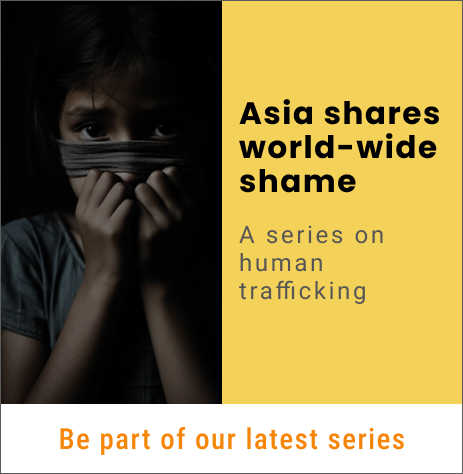A group of 16 international experts and organizations have called for immediate international action to defend freedom of religion in Hong Kong, expressing serious concern over its new security law.
The proposed Hong Kong national security law, also known as Article 23, “directly threatens religious freedom, and in particular the confidentiality of the Sacrament of Penance (otherwise known as the Sacrament of Reconciliation or “Confession”) in the Catholic Church,” the activists said in a statement.
The new law introduced in the city’s rubber-stamp legislature on March 8 will be used along with the one Beijing imposed in 2020 after quashing pro-democracy protests.

Under the new security law, a person can be punished with up to 14 years in prison for knowing that another person has committed “treason” but not telling the authorities within a reasonable time.
The rights activists said this provision in the law “profoundly alarmed” them “as it has grave implications for the confidentiality of Confession in the Catholic Church and other Christian traditions.”
The new law could force a priest to reveal what has been said in Confession, against his will and conscience, and in violation of the privacy of the individual confession, they said.
“Provisions in the law open the potential for politically motivated prosecutions”
In most Christian Churches, and particularly in the Catholic Church, tradition and teaching forbid a priest from divulging information received in confession in any way for any reason Under this confidentially, known as the seal of Confession, a priest is also prohibited from identifying a penitent in any manner.
A confessor may encourage a penitent to report a crime he or she committed to the authorities. But the confessor “cannot report it himself and must never be held criminally liable for having heard that confession,” the activist’s statement noted.
More broadly, the new security law, “carries with it very serious implications for basic human rights, fundamental freedoms, the rule of law and Hong Kong’s autonomy.” The signatories include Benedict Rogers of Hong Kong Watch, Frances Hui of The Committee for Freedom in Hong Kong Foundation, Scot Bower of Christian Solidarity Worldwide, Bob Fu of China Aid and 12 other leading activists working for human rights and religious freedom.
To force a priest to reveal what has been said in Confession, against his will and conscience and in total violation of the privacy of the individual confessing, is a total violation of Article 18 of the Universal Declaration of Human Rights and as such is completely unacceptable and must be condemned by people of conscience of all faiths and none throughout the world.
Vague provisions in the law open the potential for politically motivated prosecutions under illegitimate ‘national security’ grounds, they said.
“Proposed legislation criminalizes attempts to advocate for legislative changes”
The legislation also lacks safeguards found in other common-law jurisdictions, such as a periodic review of the need for continued detention, and it undermines due process and the right to a fair trial, it noted.
The proposed law allows to “speed up” national security trials, extending police detention without charge, preventing contact between arrestees and lawyers of their choice, and denying those convicted eligibility for up to a one-third reduction in their sentences for good behavior, the activist noted.
The proposed legislation criminalizes attempts to advocate for legislative changes or criticize the People’s Republic of China as “sedition.” The law defines these activities as “external interference” if foreign NGOs are involved.
The bill’s extraterritoriality clause prohibits working for democracy and civil liberties in Hong Kong from anywhere in the world. Such activities could now constitute a crime and result in the cancellation of one’s Hong Kong passport.
The activists called for “immediate, urgent and collective international action to defend freedom of religion or belief in Hong Kong.”
Credit: Source link




